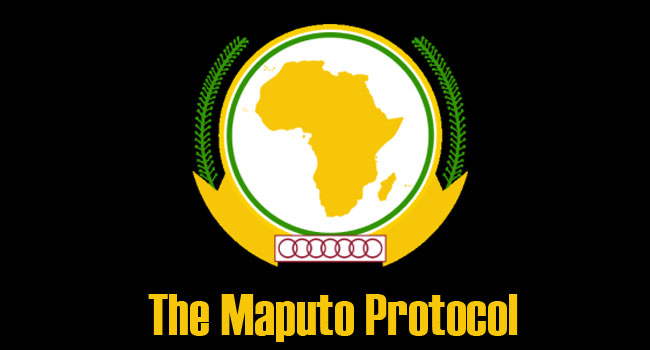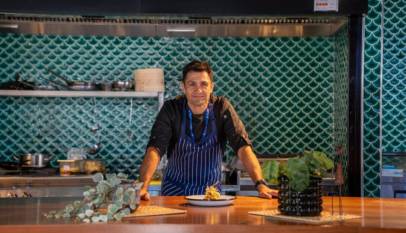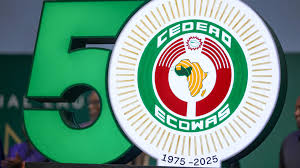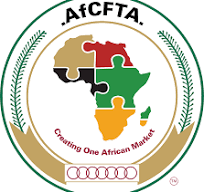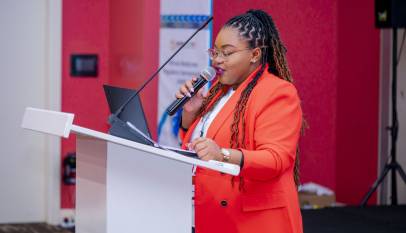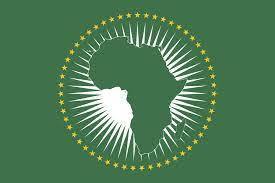BLOG | Maputo Protocol@20: Who runs the world yesterday, today and tomorrow?
Beyonce’s ‘girl power anthem’ plays in my earphones, as I write this blog on 11th July 2023, exactly 20 years since The Protocol to the African Charter on Human and Peoples’ Rights on the Rights of Women in Africa was signed. Better known as the Maputo Protocol, the African Union charter which came into effect in 2005, is the magna carta of women’s rights treaties in Africa .
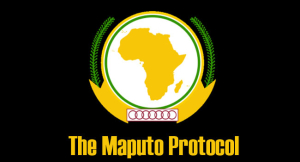
The Nairobi hotel I’m staying at, to speak at the AU ECOSOCC Annual Citizen’s Forum on Democracy and Digital Governance, is coincidently the same hotel hosting the AU WGYD 20th anniversary event. I don’t believe in coincidences, so when you choose one event over another and they’re both at the SAME hotel – its a ‘sign’.
On this 20th anniversary of one of the most significant instruments in Africa’s history, I believe we have absolutely nothing to celebrate! It’s high-time we stop making speeches and ACT – for our women and girls, for tomorrow’s prosperity.
In the same vein, Africa Integration Day was celebrated on July 7. Once again, I pondered: What are we celebrating? Since the AU Free Movement Protocol (FMP), a twin policy of the AfCFTA is yet to come into force. It is utterly puzzling how AU member states believe that the AfCFTA could be fully implemented without the FMP!
In looking at the Maputo Protocol through the lens of the AfCFTA, the Women and Youth in Trade Protocol is currently in phase 2 of negotiations, meaning our contributiions into its establishment will be written into the archives of history. In early days of lockdown in 2020, as Executive Director of the Pan African Business Women’s Association (PABWA), I led the continent’s pioneer research project to develop a comprehensive policy brief on the Protocol.
The top 3 critical issues highlighted by the policy brief were:
- Africa’s polarisation by xenophobia i.e the talk about “unity” and “integration” is not creating any shifts – who would have thought? Well, clearly everyone else, except the “career-speechmakers.”
- The experiences of African women at borders – not just small-scale women farmers. My lovely sister Achieng Akena will regale you with stories about her mode of transport (car, bus, and plane), determining how long her passport is stamped for, at border posts – indicating loose migration regulation – we know that absent/loose regulation gives rise to opportunistic criminality.
- Climate change forcing migration – references a broader issue of Migration, and the lack of tightening regulatory movement, speaking volumes about a basic understanding deficiency by AU member states that there is nothing “free” in the Free Movement Protocol, but rather ‘free’ referring to freedom of movement by those who have been legally processed (with a focus on ‘easing processing’ iro technological advancements) and therefore they can move ‘freely’ – to optimise access to markets, work, social and cultural opportunities. The FMP also has a clear regulatory framework of recourse measures by member states when citizens try to move ‘un-freely’ or illegally across borders. For those who understand FMP, we know that the levels of xenophobia across Africa may not even exist if movement was regulated effectively under the FMP
The informal sector is the backbone of Africa’s economy, and because women constitute 80% of the informal economy, women ARE the backbone of Africa’s economy. I’m sure you’re picturing the informal economy as women and children selling piles of fruit by the roadside to passers-by, or carrying baskets of vegetables on their heads through dusty border posts.
You are only partially correct, because the informal economy also includes women who sell everything from fashionwear, to yoni steaming items, to homeware, to aesthetic beauty products, and more via social media on i.e Instagram, Facebook Marketplace and Twitter. It also covers ‘trade in services’ i.e women who trade services – graphic designers, makeup artists, social media influencers, events managers etc – through unregistered businesses. The informal economy is truly an entire universe of trade in services and goods.
I was one of these women when I first started out as an entrepreneur, before formally registering my business. Over time, I have registered multiple businesses and fostered business partnerships in different sectors and across 9 countries and 4 continents. The point of sharing this, is that while women in the informal economy are already the economic backbone of their continent, if integrated into Africa’s economic agenda, their potential is limitless, especially considering the potential positive impact of the prioritisation of women and youth under the AfCFTA.
My social media bio reads: “Mother Africa called upon her daughters to inherit the fight for African prosperity – I answered”. As one of Mother Africa’s Warriors, my ‘fight’ for African prosperity, is rooted in the belief that #TradeNotAid and ensuring women and youth inclusion. Like millions of my sisters from all over Africa, I will not rest until there is measured progress in the implementation of the Maputo Protocol.
All of us passionate women advocates of the Protocol are standing on the shoulders of giants like Dr Jeanne Martin-Cisse, founder of Pan- African Women’s Organization (PAWO), Dr Ellen Johnson-Sirleaf, Dr Nkosazana Dlamini-Zuma, former chairperson of the AU Commission and architect of Agenda 2063 as well as Prof Wangari Maathai and Dr Phumzile Mlambo-Ngcuka among others. These female amazons broke down the glass ceiling and ensured women have a seat at the table.
They are the reason why we today have seats at the table and are making our voices are heard and our narratives understood. So, when Beyonce asks “who run the world?” WE have to ensure that our daughters can answer “we do”.
Yavi Madurai ‘Ms. AfCFTA’ is the Pan Africanist Founder of the African Prosperity Fund cum the Facilitator of the AU-ECOSOCC-GIZ 2023 National Dialogue Series on the AU Free Movement Protocol.

